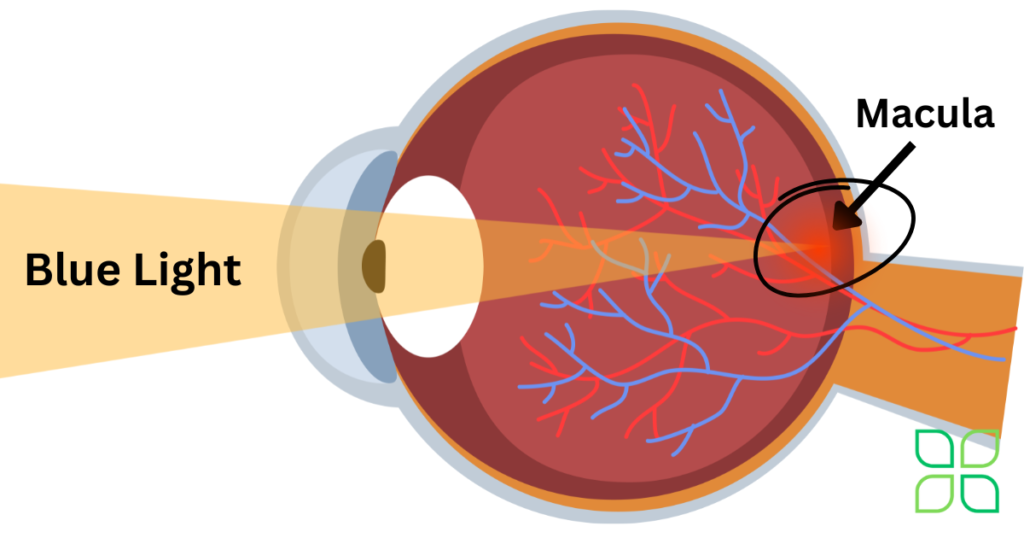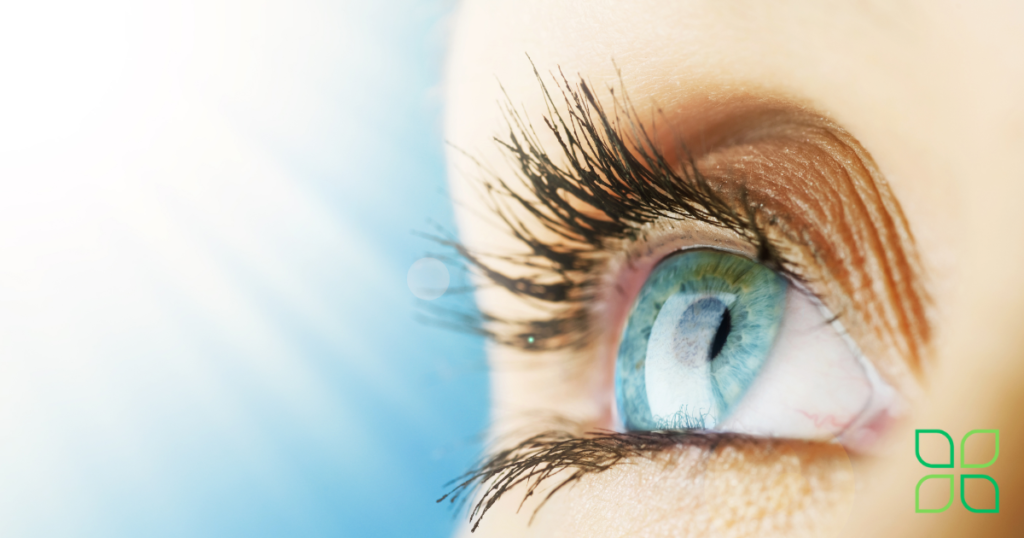Is Lutein Good for Your Vision? Here’s What You Need to Know
In recent years, the discussion around eye health and nutrition has gained significant momentum. As more people become aware of the importance of maintaining good vision, the spotlight has increasingly turned to lutein. But what exactly is lutein, and how does it contribute to eye health? In this blog post, we’ll delve into the science behind lutein and explore its benefits for your vision.
Understanding Lutein: What Is It?

First off, lutein is a carotenoid which are nutrients from the bright colors found in fruits and vegetables. The highest concentrations in leafy greens like spinach and kale.
At the heart of lutein’s health benefits is its powerful antioxidant property. Antioxidants are crucial in our diet as they help protect our cells from oxidative stress. Oxidative stress is a process that can lead to cellular damage, contributing to a host of chronic diseases, including heart disease and cancer. By including lutein-rich foods in your diet, you’re essentially fortifying your body’s defense mechanism against these potential threats.
One of the most intriguing aspects of lutein is its significant presence in the human eye, specifically in the macula. The macula is a small area of the retina responsible for our central vision, allowing us to see fine details clearly. The high concentration of lutein in this part of the eye has led scientists to explore its role in maintaining eye health.
The Science Behind Lutein and Eye Health
In today’s digital age, we’re constantly surrounded by screens, whether it’s our smartphones, computers, or TVs. All these devices emit blue light, a high-energy visible light that, while natural from the sun, has become a concern due to our increased screen time. This is where lutein comes into play as a vital nutrient for eye health.
Lutein as a Natural Blue Light Filter

Lutein accumulates in the macula, where it acts as a natural filter against blue light. By absorbing these high-energy wavelengths, lutein helps reduce the risk of light-induced oxidative damage. A study published in the Journal of Ophthalmology found that individuals with higher lutein intake experienced improved macular pigment optical density, which is linked to better visual performance.
Antioxidant Properties and Age-Related Macular Degeneration (AMD)
Age-related macular degeneration (AMD) stands as one of the most significant causes of vision impairment among the elderly. As we age, the risk of developing this eye condition increases, often leading to difficulties in performing everyday activities due to deteriorating vision. But what if there was a natural way to help protect our eyes from such degeneration? Enter the powerhouse of nutrients: antioxidants.
The Power of Antioxidants: Lutein to the Rescue
Antioxidants are compounds that help neutralize free radicals in our bodies. Free radicals are unstable molecules that can cause oxidative stress, leading to cellular damage. Over time, this oxidative stress can contribute to the development of various age-related diseases, including AMD.
Among the antioxidants, lutein has garnered attention for its remarkable protective properties against AMD. Found in leafy greens like spinach, kale, and broccoli, as well as in egg yolks, lutein is a carotenoid—a type of pigment that is naturally present in the macula of the human eye. Its primary role is to filter harmful blue light and protect the eye tissues from oxidative stress.

Scientific Insights: Lutein’s Impact on AMD
A recent meta-analysis published in the Nutrients journal has shed light on the relationship between dietary lutein intake and the risk of AMD. According to the study, individuals with a higher intake of lutein-rich foods exhibited a significantly reduced risk of developing AMD. This finding emphasizes the importance of incorporating lutein into our diets as a proactive measure against vision loss.
How to Boost Your Lutein Intake
Incorporating lutein-rich foods into your diet is a practical way to support eye health. Here are some tips and foods to consider:
Eat Your Greens
Leafy greens like spinach, kale, and collard greens are some of the best sources of lutein. A cup of cooked kale contains approximately 23.7 mg of lutein, which can significantly contribute to your daily intake.
Include Colorful Vegetables
Other vegetables such as corn, broccoli, and peas are also rich in lutein. Adding these to salads, soups, or stir-fries can enhance your diet and provide additional health benefits.
Consider Lutein Supplements

For those who might find it challenging to consume enough lutein through diet alone, supplements are an alternative. A typical lutein supplement dose ranges from 6 to 20 mg per day, which has been shown to be effective in supporting eye health. HERE is the best multi-carotenoid product that we could find with a 6 essential carotenoids including lutein and zeaxanthin which but reside in the macular region of the eye.
Practical Tips for Maintaining Eye Health
While increasing lutein intake is beneficial, maintaining overall eye health requires a holistic approach. Here are some actionable tips:
Practice the 20-20-20 Rule
To reduce digital eye strain, follow the 20-20-20 rule: every 20 minutes, take a 20-second break and focus on an object 20 feet away. This practice can help alleviate eye fatigue caused by prolonged screen time.
Wear Sunglasses with UV Protection
Exposure to ultraviolet (UV) rays can increase the risk of cataracts and other eye conditions. Wearing sunglasses that block 100% of UVA and UVB rays can offer protection during outdoor activities.
Regular Eye Check-Ups

Scheduling regular eye exams can help detect any vision changes or eye conditions early on. This proactive approach ensures timely intervention and management of potential issues.
Use blue light blocker glasses
Use blue light blocker glasses when looking at displays and monitors like your tv, mobile device, computer, etc. to block out some of the blue light that are emitted from these screens.
Conclusion: The Eye Health Benefits of Lutein

Lutein plays a vital role in maintaining eye health, particularly by filtering blue light and providing antioxidant protection. By incorporating lutein-rich foods into your diet and following eye health best practices, you can support your vision and reduce the risk of eye-related issues as you age.
As always, consult with a healthcare professional before starting any new supplement regimen, and remember that a balanced diet and healthy lifestyle are key components of overall well-being.
